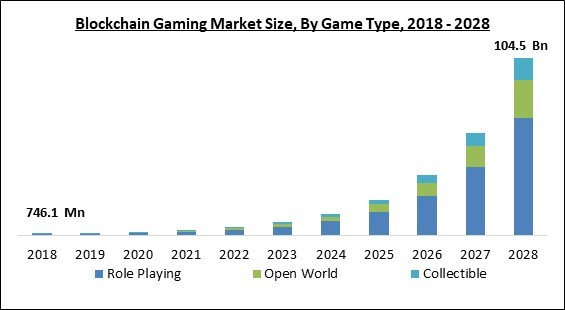Last updated on May 27th, 2025 at 07:38 am
Play-to-Earn (P2E) games have reshaped the gaming industry’s reward system, enabling players to earn real-world income through blockchain-based assets. In developing countries, where job opportunities are limited and economic instability is widespread, P2E has emerged as a financial lifeline—sometimes even a primary source of income.
Games like Axie Infinity and Decentraland offered new earning opportunities without requiring a formal job or bank account, making them accessible to people of all ages and socioeconomic backgrounds. However, beneath the promise of financial inclusion lies a more complex and often troubling reality.
Many P2E games rely on volatile in-game tokens, high entry costs, exploitative scholarship programs, and unsustainable economic models. This exposes players—especially those in low-income regions—to significant financial risks while often earning less than minimum wage. This raises an important question: Do these games truly empower users, or are they just another form of digital labor exploitation?
This article explores the economic dynamics of P2E gaming, the power imbalance between developers and players, and whether these platforms genuinely promote financial inclusion—or simply reinforce global inequality in a new, digital form.

The Appeal of P2E in Developing Countries
P2E gaming has seen significant adoption in developing countries, where players earn real income through gameplay. This trend accelerated during the COVID-19 pandemic when lockdowns and restrictions disrupted traditional income sources, particularly in countries like the Philippines.
At its peak, Axie Infinity allowed some players to earn more than the national average income, highlighting its potential as a financial safety net. The widespread adoption of mobile technology and the growing affordability of smartphones further fueled participation, making blockchain gaming accessible without the need for expensive consoles or PCs.
As a result, the gaming population in developing nations surged—from 77 million in 2015 to 186 million in 2021. There have been projections that in Nigeria, where 23% of the population engages in gaming, play-to-earn adoption could rise to 33%, making it a key market for P2E platforms.
However, participating in P2E often requires an upfront investment in NFTs or in-game assets, which can be prohibitively expensive for many players. To address this, gaming guilds have emerged, lending in-game assets to new players in exchange for a share of their earnings. While this lowers the barrier to entry, it also creates a system where wealthier investors control a significant portion of players’ earnings—raising concerns about fairness and long-term sustainability.
Low Wages, High Costs: The Economic Reality of P2E
For most players in developing countries, P2E gaming is a precarious endeavor, balancing between financial opportunity and high-risk investment. While early adopters and skilled players may profit, the majority find themselves trapped in a cycle of low wages, high initial costs, and uncertain earnings.
Many P2E games require players to purchase NFTs or stake tokens before they can start earning. Even after overcoming these entry barriers, earnings remain inconsistent and heavily dependent on market demand, player activity, and decisions made by game developers.
The volatility of the crypto market further compounds these issues. In-game tokens can experience sharp price drops, meaning a player’s earnings today might be worth significantly less tomorrow. Those relying on P2E for income may find themselves in financial distress if token prices crash, further exacerbating economic hardships.
Sustainability is another major challenge. Many P2E models rely on a constant influx of new players to maintain token value and reward distributions. Once user growth slows, the in-game economy often collapses, leaving existing players with devalued assets and no way to recoup their investments.
Without a long-term strategy for value creation beyond speculative trading, many P2E games resemble Ponzi schemes rather than stable economic opportunities. The fall of Axie Infinity in 2022 is a prime example. When the value of its in-game token, Smooth Love Potion (SLP), plummeted, players saw their earnings evaporate. Many had to rely on scholarship programs where wealthier investors lent NFTs in exchange for a percentage of earnings—further entrenching financial dependence.
Regulatory Uncertainty and Legal Risks
The unclear classification of in-game assets like NFTs presents another challenge. Depending on the jurisdiction, these digital assets may be considered securities, subjecting them to strict financial regulations. This lack of clarity creates compliance difficulties for developers operating in multiple regions. Additionally, inconsistent tax policies leave players uncertain about their financial obligations, adding another layer of complexity to P2E earnings.
Some governments have raised concerns over the mechanics of P2E games, likening them to gambling. In the Philippines, the National Police Anti-Cybercrime Group scrutinized Axie Infinity, noting that players had to invest $300 to purchase in-game characters before they could start earning. Such entry costs raise ethical questions about whether P2E platforms exploit financially vulnerable players rather than providing meaningful financial opportunities.
How P2E Earnings Compare in Developed Countries
Players in developed nations generally treat P2E gaming as a supplementary income rather than a primary source of livelihood. This is largely due to higher wages, more stable economies, and greater access to traditional employment. The contrast in how P2E earnings are used between developing and developed countries highlights broader economic disparities.
For example, Nigerian players tend to liquidate their in-game assets much faster than players in wealthier nations. Economic constraints, financial instability, and a lack of long-term investment opportunities drive this trend. With a national minimum wage of approximately ₦70,000 ($44) per month, many Nigerians rely on P2E earnings to cover daily expenses like food, rent, and transportation.
In contrast, players in countries like the U.S., Germany, or Japan can afford to reinvest their earnings into better in-game assets or staking mechanisms for long-term gains. This reinvestment contributes to a more sustainable gaming economy in these regions, while in Nigeria and similar markets, the urgency of financial needs leads to immediate asset liquidation.
Cryptocurrency volatility further reinforces this behavior. In-game tokens, often subject to extreme price swings, make holding assets a risky proposition. The sharp decline of Axie Infinity’s SLP token—from an all-time high of $0.365 to around $0.005—demonstrates how quickly P2E earnings can lose value. For players in financially precarious situations, the risk of holding tokens is too high, prompting immediate sell-offs.
Additionally, the lack of financial infrastructure in many developing countries exacerbates this issue. A significant portion of the population remains unbanked or underbanked, limiting access to savings and investment platforms. Without these tools, P2E earnings function more like a daily wage rather than a long-term financial asset. In contrast, gamers in developed countries have access to regulated exchanges, staking services, and DeFi platforms that enable them to grow their earnings over time.
The Future of P2E: Sustainability or Exploitation?
While P2E games present an alternative income stream, they also expose players to financial instability, high entry costs, and the volatility of crypto markets. The speculation that P2E gaming was fading has been countered by the rise of new models like Tap-to-Earn (T2E), but these face similar challenges.
RELATED: Web3 Gaming: Is the Play-to-Earn (P2E) Model on Its Last Legs?
To ensure long-term sustainability, game developers must shift away from unsustainable tokenomics and Ponzi-like structures. Instead, they should focus on creating engaging gameplay, fair economic models, and compliance with evolving regulations. If P2E platforms can evolve beyond speculative hype, they may become a legitimate economic opportunity. However, without these changes, they risk continuing to function as digital labor traps rather than vehicles for financial empowerment.
Disclaimer: This piece is intended solely for informational purposes and should not be considered trading or investment advice. Nothing herein should be construed as financial, legal, or tax advice. Trading or investing in cryptocurrencies carries a considerable risk of financial loss. Always conduct due diligence.
If you would like to read more articles like this, visit DeFi Planet and follow us on Twitter, LinkedIn, Facebook, Instagram, and CoinMarketCap Community.
Take control of your crypto portfolio with MARKETS PRO, DeFi Planet’s suite of analytics tools.”





















